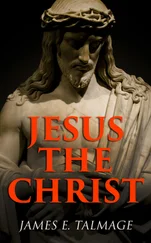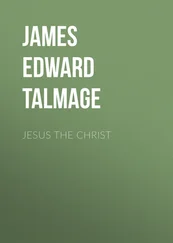LECTURE II.
GOD AND THE GODHEAD.
Table of Contents
Article 1.—We believe in God, the Eternal Father, and in His Son, Jesus Christ, and in the Holy Ghost.
1. The Existence of God.—Since faith in God constitutes the foundation of religious belief and practice, and inasmuch as a knowledge of the attributes and character of Deity is essential to an intelligent exercise of faith in Him, this subject claims first place in our study of the doctrines of the Church.
2.The existence of God is scarcely a question of rational dispute; nor does it call for proof by the feeble demonstrations of man's logic, for the fact is admitted by the human family practically without question, and the consciousness of subjection to a supreme power is an inborn quality of mankind. The early scriptures are in no sense devoted to a primary demonstration of God's existence, nor to attacks on the sophistries of atheism; and from this fact we may infer that the errors of doubt developed in some period later than the first. The universal assent of mankind to the existence of God is at least a strongly corroborative truth. There is a filial passion within human nature which flames toward heaven. Every nation, every tribe, every individual, yearns for some object of reverence. It is natural for man to worship; his soul is unsatisfied till it finds a deity. When men through transgression first fell into darkness concerning the true and living God, they established for themselves other deities; and so arose the abominations of idolatry. And yet, terrible as these practices are, even the most revolting idolatries testify to the existence of a God by declaring man's hereditary passion for worship. Plutarch has wisely remarked of ancient conditions: "If you search the world, you may find cities without walls, without letters, without kings, without money; but no one ever saw a city without a deity, without a temple, or without prayers." This general assent to a belief in the existence of Deity is testimony of a high order; and in this connection the words of Aristotle may be applied:—"What seems true to some wise men is somewhat probable; what seems true to most or all wise men is very probable; what most men, both wise and unwise, assent to, still more resembles truth; but what men generally consent in has the highest probability, and approaches so near to demonstrated truth, that it may pass for ridiculous arrogance and self-conceitedness, or for intolerable obstinacy and perverseness, to decry it."48
3.The multiplicity of evidence upon which mankind rest their conviction regarding the existence of a Supreme Being, may be classified, for convenience of consideration, under the three following heads:
I. The evidence of history and tradition.
II. The evidence furnished by the exercise of human reason.
III. The conclusive evidence of direct revelation from God Himself.
4. I. History and Tradition.—History as written by man, and tradition as transmitted from generation to generation prior to the date of any written record now extant, give evidence of the actuality of Deity, and of close and personal dealings between God and man in the first epochs of human existence. One of the most ancient records known, the Bible, names God as the Creator of all things,49 and moreover, declares that He revealed Himself to our first earthly parents and to many other holy personages in the early days of the world. Adam and Eve heard His voice50 in the Garden, and even after their transgression they continued to call upon God and to sacrifice to Him. It is plain, therefore, that they carried with them from the Garden a knowledge of God. After their expulsion they heard "the voice of the Lord from the way toward the Garden of Eden," though they saw Him not; and He gave unto them commandments, which they obeyed. Then came to Adam an angelic messenger, and the Holy Ghost inspired the man and bare record of the Father and the Son.51
5.Cain and Abel learned of God from the teachings of their parents, as well as from personal ministrations. After the acceptance of Abel's offering, and the rejection of that of Cain followed by Cain's terrible crime of fratricide, the Lord talked with Cain, and Cain answered the Lord.52 Cain must, therefore, have taken a personal knowledge of God from Eden into the land where he went to dwell.53 Adam lived to be nine hundred and thirty years old and many children were born unto him. Them he instructed in the fear of God, and many of them received direct ministrations. Of Adam's descendants, Seth, Enos, Cainan, Mahalaleel, Jared, Enoch, Methuselah, and Lamech the father of Noah, each representing a distinct generation, were all living during Adam's lifetime. Noah was born but a hundred and twenty-six years after the time of Adam's death, and moreover lived nearly six hundred years with his father Lamech, by whom he was doubtless instructed in the traditions concerning God's personal manifestations, which Lamech had learned from the lips of Adam. Through the medium of Noah and his family, a knowledge of God by direct tradition was carried beyond the flood; and Noah held direct communication with God,54 and lived to instruct ten generations of his descendants. Then followed Abraham, who also enjoyed direct communion with the Creator,55 and after him Isaac, and Jacob or Israel, among whose descendants the Lord wrought such wonders through the instrumentality of Moses. Thus, had there been no written records, tradition would have preserved and transmitted a knowledge of God.
6.But even if the accounts of the earliest of man's personal communion with God had become dimmed with time, and therefore weakened in effect, they could but give place to other traditions founded on later manifestations of the Divine personality. Unto Moses the Lord made Himself known, not alone from behind the curtain of fire and the screen of clouds,56 but by direct face to face communication, whereby the chosen high-priest beheld even "the similitude" of his God.57 This account of direct communion between Moses and God, in part of which the people were permitted to share,58 as far as their faith and purity permitted, has been preserved by Israel through all the generations of the past. And from Israel the traditions of God's existence have spread throughout the world; so that we find traces of this ancient knowledge even in the most fanciful and perverted mythologies of heathen nations.
7. II. Human Reason, operating upon observations of the things of nature, strongly declares the existence of God. The mind, already imbued with the historical truths of the Divine existence and its close relationship with man, will find confirmatory evidence in nature on every side; and even to him who rejects the testimony of the past, and assumes to set up his own judgment as superior to the common belief of ages, the multifarious evidences of design in nature appeal. Every observer must be impressed by the proofs of order and system among created things, and by the absence of superfluities in nature. He notes the regular succession of day and night providing alternate periods of work and rest for man, animals, and vegetables; the sequence of the seasons, each with its longer periods of labor and recuperation, the mutual dependence of animals and plants, the circulation of water from sea to cloud, from cloud to earth again, sustaining the fertility of the soil. As man proceeds to the closer examination of things, he finds that by study and scientific investigation these proofs are multiplied many fold. He may learn of the laws by which earth and its associated worlds are governed in their orbits; by which satellites are held subordinate to planets, and planets to suns; he may behold the marvels of vegetable and animal anatomy, and the surpassing mechanism of his own body; and with such appeals to his reason increasing at every step, his wonder as to who made all this gives place to inexpressible admiration for the Creator whose presence and power are thus so forcibly proclaimed; and the observer becomes a worshiper.
Читать дальше












